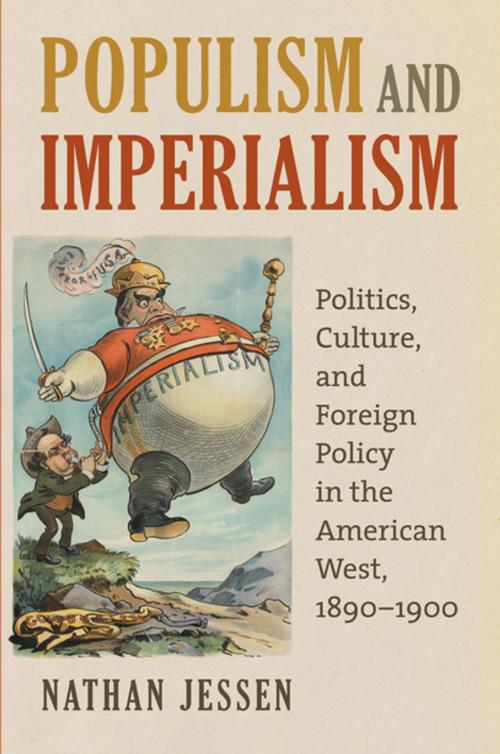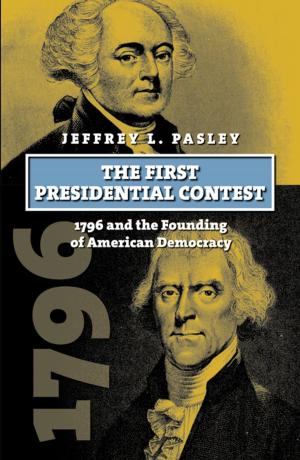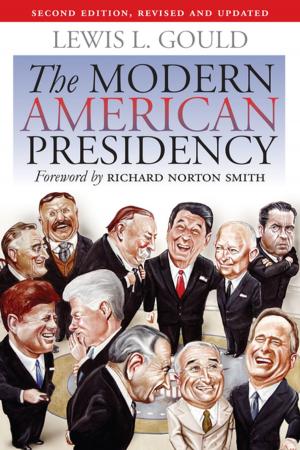Populism and Imperialism
Politics, Culture, and Foreign Policy in the American West, 1890-1900
Nonfiction, Social & Cultural Studies, Political Science, Government, Political Parties, History, Americas, United States, 19th Century| Author: | Nathan Jessen | ISBN: | 9780700624652 |
| Publisher: | University Press of Kansas | Publication: | July 21, 2017 |
| Imprint: | University Press of Kansas | Language: | English |
| Author: | Nathan Jessen |
| ISBN: | 9780700624652 |
| Publisher: | University Press of Kansas |
| Publication: | July 21, 2017 |
| Imprint: | University Press of Kansas |
| Language: | English |
In the final years of the nineteenth century, as a large-scale movement of farmers and laborers swept much the country, the United States engaged in an ostensibly anti-colonial war against Spain and a colonial war of its own in the Philippines. How one related to the other—the nature of the activists’ involvement in foreign policy debates and the influence of these wars upon the prospects for domestic reform—is what Nathan Jessen explores in Populism and Imperialism.
American reformers at the turn of the twentieth century have long been misrepresented as accomplices of empire. Rather, as Populism and Imperialism makes clear, they were imperialism’s chief opponents—and that opposition contributed to their ultimate defeat. Correcting the record, Jessen charts the fortunes of the Populists through the nineteenth century’s last decade. He shows that, contrary to the standard narrative, Populists remained powerful in West after the election of 1896; they only suffered their final political reverses in 1900 after being branded as unpatriotic traitors by their opponents. In fact, the Populists and Democrats in the West favored war with Spain for humanitarian reasons; some among them led the opposition to Hawaiian annexation and—as leaders of the anti-imperialists in Congress from 1899 on—the occupation of the Philippines.
Jessen also addresses the little-studied “money power” conspiracy theory that explains a key element of the Populist worldview. This theory, linking European imperialism and the growing economic and political power of financiers, stirred Populist opposition to American imperialism as well.
Populism and Imperialism revises a critical chapter in US history and offers lessons for the present as well as insights into the nation’s past.
In the final years of the nineteenth century, as a large-scale movement of farmers and laborers swept much the country, the United States engaged in an ostensibly anti-colonial war against Spain and a colonial war of its own in the Philippines. How one related to the other—the nature of the activists’ involvement in foreign policy debates and the influence of these wars upon the prospects for domestic reform—is what Nathan Jessen explores in Populism and Imperialism.
American reformers at the turn of the twentieth century have long been misrepresented as accomplices of empire. Rather, as Populism and Imperialism makes clear, they were imperialism’s chief opponents—and that opposition contributed to their ultimate defeat. Correcting the record, Jessen charts the fortunes of the Populists through the nineteenth century’s last decade. He shows that, contrary to the standard narrative, Populists remained powerful in West after the election of 1896; they only suffered their final political reverses in 1900 after being branded as unpatriotic traitors by their opponents. In fact, the Populists and Democrats in the West favored war with Spain for humanitarian reasons; some among them led the opposition to Hawaiian annexation and—as leaders of the anti-imperialists in Congress from 1899 on—the occupation of the Philippines.
Jessen also addresses the little-studied “money power” conspiracy theory that explains a key element of the Populist worldview. This theory, linking European imperialism and the growing economic and political power of financiers, stirred Populist opposition to American imperialism as well.
Populism and Imperialism revises a critical chapter in US history and offers lessons for the present as well as insights into the nation’s past.















